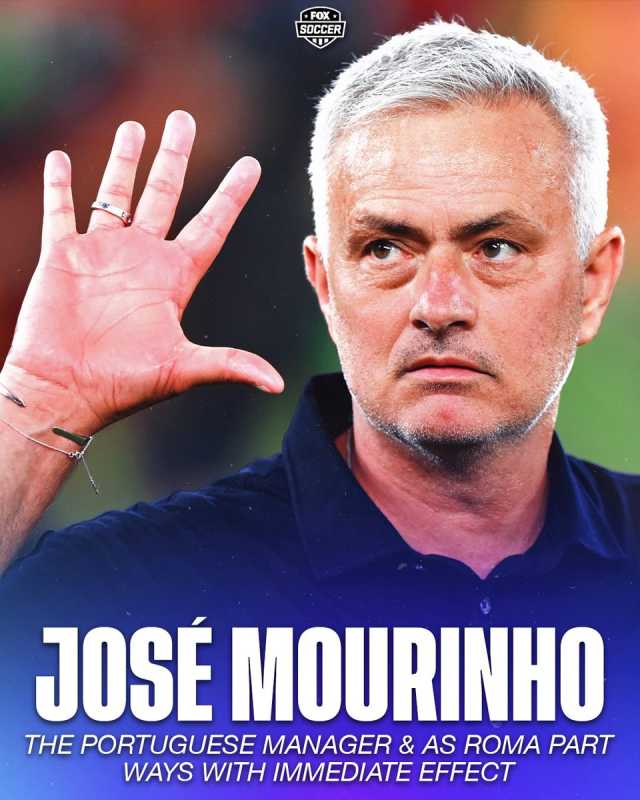Sports
Jose Mourinho Leaves Roma as Club Parts Ways with Manager

The unexpected departure of Jose Mourinho has marked the end of his tenure at Roma, as the club announced its decision to part ways with the manager. The Friedkin Group, owners of Roma, made the swift move after Roma’s defeat to Milan, which left the team languishing in the ninth position in Serie A and facing the possibility of missing out on Champions League qualification for yet another season.
Mourinho’s emotional departure from Trigoria, Roma’s training ground, was witnessed by a gathering of Romanisti, who bid their farewells to the crestfallen 60-year-old. The decision to dismiss Mourinho came as a surprise, as many expected him to at least complete the season. However, with Roma’s poor league form and the urgent need to secure Champions League football, the club’s owners decided to take action to salvage the remainder of the season.
In a bold move, Roma has appointed club legend Daniele De Rossi as the new manager for the rest of the campaign. While De Rossi’s previous managerial stint with SPAL was fraught with difficulties, the hope is that his intimate knowledge of the pressure and expectations associated with playing for Roma will inspire an immediate turnaround in results.
Now, as Mourinho’s time at Roma comes to a close, it is important to examine his legacy at the club. On one hand, Mourinho brought Roma its first trophy in 14 years by clinching the UEFA Europa Conference League title in his first season. Under his guidance, Roma’s fanbase witnessed unprecedented devotion, with the Stadio Olimpico selling out for 40 consecutive matches. Moreover, Mourinho’s charisma enabled the club to attract notable signings such as Tammy Abraham, Paulo Dybala, and Romelu Lukaku. He also played a role in promoting young talents like Nicola Zalewski and Edoardo Bove.
On the other hand, questions arise concerning Mourinho’s managerial performance. Despite Roma boasting the third-highest wage bill in Serie A, the team failed to achieve the desired results. Mourinho often blamed financial constraints for poor performances, but the club’s significant spending during his first summer, as well as the acquisitions of Dybala and Lukaku, pose a valid challenge to this narrative. Additionally, Mourinho’s constant criticism of referees, notably after the Europa League final in Budapest, strained the relationship with the ownership.
The style of football played under Mourinho also drew criticism. While his pragmatic approach was acceptable when yielding positive results, the negative and uninspiring football on display during his time at Roma tested the patience of fans and ultimately sealed his fate.
It is important to acknowledge the financial limitations imposed on Roma due to Financial Fair Play (FFP) regulations, which hindered Mourinho’s ability to assemble a stronger squad. While outgoing sporting director Tiago Pinto made some questionable signings, the impact was not as detrimental as the damage caused by his predecessor, Monchi. The consequences of Monchi’s failures continued to haunt the club, leaving Pinto with the arduous task of balancing the wage bill and providing Mourinho with the necessary reinforcements.
The Europa League final loss to Sevilla marked the turning point for Mourinho’s tenure at Roma. The defeat not only deprived the club of another trophy but also limited their resources for the following season. Although it remains uncertain whether De Rossi can turn things around with the current squad, Roma still has a chance at securing a top-four finish, with only five points separating them from fourth-placed Fiorentina.
While Roma fans will forever hold a fondness for Mourinho, it may be the end of his reign in club football. As his best years appear to be behind him, it remains to be seen if any top-level club will take a gamble on the Portuguese manager.












